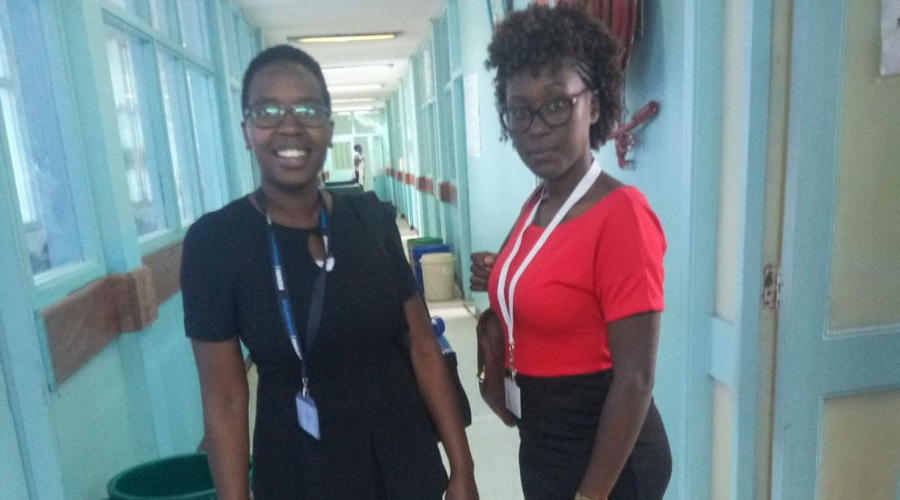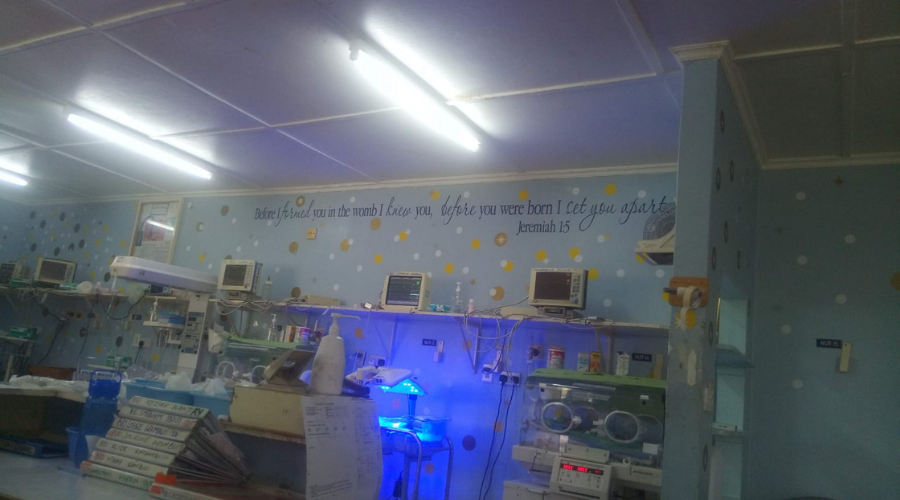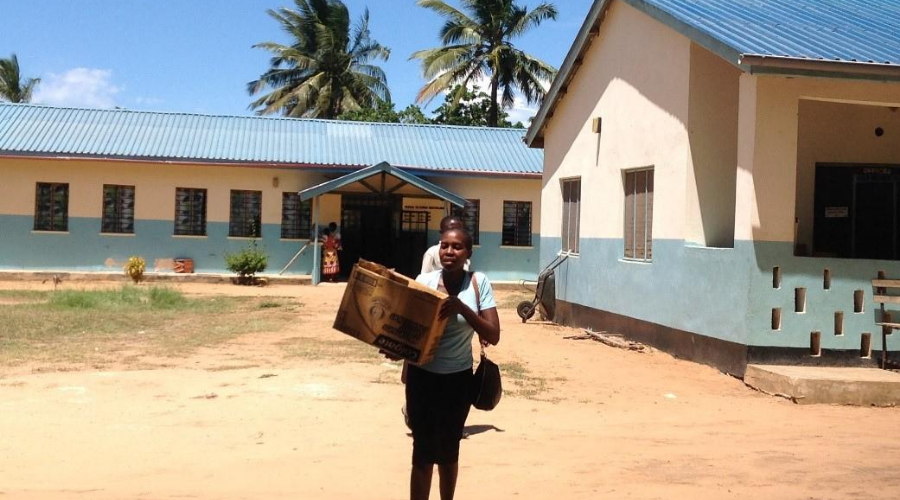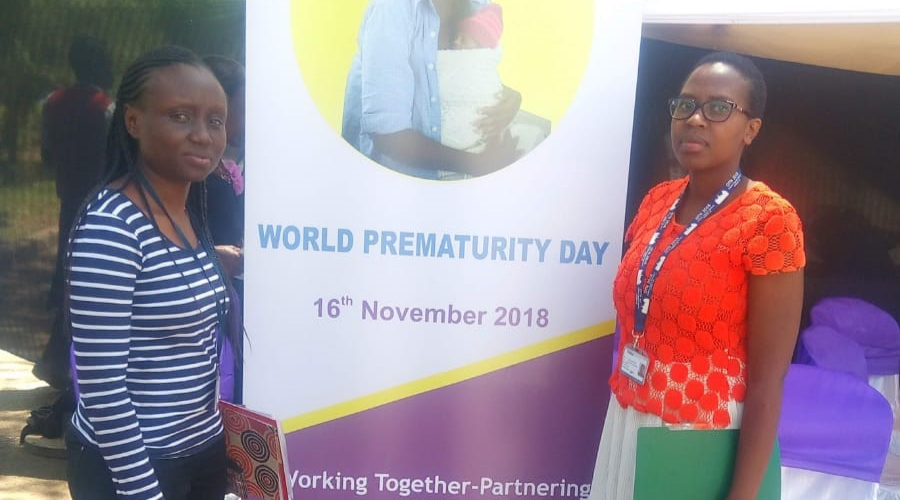This time we turn our attention to an experienced researcher, who passed up the opportunity to go to the University of Oxford to come to the UK’s number one public health school (Shangai Rankings, 2020) to get a research grounding for her work in Nairobi, Kenya. Joyline Jepkosgei has a BSc in Environmental Science and is currently studying for the MSc in Public Health – Health Services Research Stream.
I sat with Joyline for a virtual coffee to find out a little bit more about what makes this remarkable young lady tick – and I found out a lot about her experiences, thoughts and ambitions moving forward.
Written by: Rumbi Anne Gumbie – B-Theme MARCH Student Rep
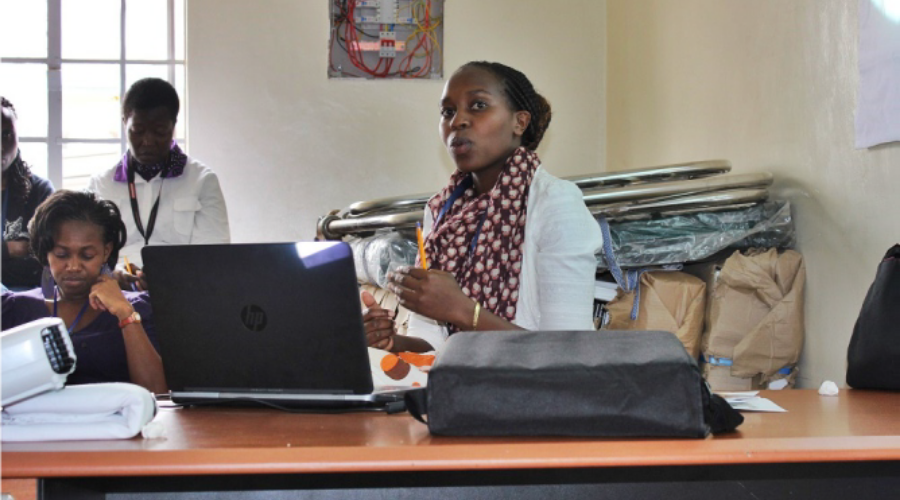
Joyline's Background
Before joining LSHTM, Joyline was a research assistant at the KEMRI - Wellcome Trust research programme (KWTRP), a partnership between the Kenya Medical Research Institute, the Wellcome Trust and the University of Oxford. She joined KWTRP in 2015 as a research intern where she was sponsored to do a course in health research methods. While there, she was involved in a research study that aimed to explore KWTRP community engagement strategies and to assess its effectiveness.
Joyline went on to work as a research assistant conducting data analysis in a study that aimed to explore factors influencing feeding decisions among carers of HIV-exposed infants. Shortly afterwards, she moved onto the health services research department, where her Masters’ proposal is linked. In this work, she used an ethnographic approach to explore the culture of neonatal nursing in three public hospitals in Nairobi to inform a potential service design: task shifting in addressing the human resource for a health crisis. Joyline’s primary role was to conduct fieldwork collecting data and observing nursing work in these clinical settings.
"I hope to use my masters fellowship to lay the ground work for a project that I might explore further as a PhD. In the coming years I would love to mentor upcoming young scientists, particularly girls interested in STEM subjects in sub-Saharan Africa."
It is hard to believe that we left LSHTM on a day when many of us studying the MSc programmes, had no idea we would not be returning! Can you tell us a little bit about how you have handled the stress of the lockdown period, studying for exams and your summer project?
I love spending time alone, so the lockdown wasn’t too bad for me. I love a bit of time in the sun and plenty of sleep time! I don’t function without sleep. The times that I am not doing literature reviews, I read non-academic books. I love Chimamanda Ngozi’s work. I can read it over and over. Though I wouldn’t consider myself a feminist, I like her way of thinking about feminism.
Which of her books would you recommend starting with?
Americanah. I found it very interesting.
So what was a typical day like in the clinical setting?
A typical day would involve beginning with the morning handover as the morning shift took over from the night shift. I would shadow a nurse from the start of her day to the end and ask for interviews.
Did you face any challenges while conducting this work?
Some of the challenges I encountered involved considering issues like; would the care providers be uncomfortable? Would they change their behaviour because I was present? However, I soon discovered that they considered me an extra pair of hands. They even started to ask me to help out in different ways like getting files from here and there, and over time it extended to asking me to help more, for example, (in an emergency) to turn on the oxygen knob.
This put me in an awkward position as I am not clinically trained. The challenge was balancing my role and maintaining relationships in the work environment especially as nurses faced stressful workloads and sometimes worked alone. Therefore, how does one say “I am a researcher, I am not a clinical person” in that situation?
How did you overcome these challenges and what advice would you give to someone faced with a similar challenge?
Well, we tried to engage with the nurse managers to address some of these issues but it was a delicate balance. We had built relationships with them, so reporting issues became difficult.
I focussed on developing insights into gaps around communication and looking at nursing handover as the point where communication should be handed over to the next team. I was able to establish that handover was a routine that was embedded, it was the core that brought the nursing teams together. It was challenged by all these things that were happening and complicated by documentation which was often poor, as nurses rarely had time for this.
I worked this into a Masters’ proposal for a project that my funding is now based on, to look at improving clinical handover and communication as a way of extending continuity of care. At that point, I proposed doing further work with the nurses to formally conduct some more observations engaging them in conversations to see how we could improve nursing handover.
What brought you to LSHTM?
Although I’ve been working in research since 2016, I felt that I did not have a good grounding in research. My undergraduate degree had not prepared me for the tools I needed as it was health promotion based. I looked around for schools that would give me those skills and found LSHTM. I felt the health services research stream would be a good place to launch my research career and a foundation to go into a PhD. My work experience helped towards thinking about the project and how to put together the proposal. I had a chance to go to Oxford University but I chose LSHTM.
What advice would you give to anyone wanting to be successful with a Wellcome trust application?
This is my second time applying. When you first take a look at it, it feels quite daunting. However, if you have the right support in terms of mentorship, this helps a great deal.
The first thing to think about is having a viable idea, something that is convincing and has good support. Think about the work that has informed that idea. You need to demonstrate that you can identify a gap in research and knowledge. We submitted my application after the eighth draft. It was a lot of work.
Early planning, scouting for supervisors, and perseverance is key. They look at the qualifications of the supervisors (seniority) to ensure that your idea is competitive and your supervisors are adequately qualified and have a good grounding in research.
If you do that you have a chance at success.
What are your thoughts on the impact that COVID-19 might have had on the work that you are going back to?
"...there is a lot of fear and anxiety around, and are people staying away from the hospitals... COVID-19 has impacted some of the milestones or gains that have been made in promoting facility-based delivery central to this work."
I think that firstly, although back home in Kenya the cases are not high compared to countries like the UK, there is a lot of fear and anxiety around, and are people staying away from the hospitals. People are no longer excited about being at the hospital including mothers who need to deliver.
COVID-19 has impacted some of the milestones or gains that have been made in promoting facility-based delivery central to this work. I have no idea what working with newborns and neonates will look like if the pandemic is still around when I return. I wonder whether these clinical units would be happy to admit an extra person who is not a clinician in those spaces.
I would also consider the ethics review process as it is usually very long. I have not done that and at the moment the review board is focussing on COVID-19 related studies because of the pandemic. The funding also has a timeline and we don’t know what the funder would say about time extensions. There is a lot of uncertainty.
As we all know, 2020 has been a challenging year, and the latest thing that’s been rocking our worlds is the issues around racial equality, discrimination and the Black Lives Matter movement. You were in London at this time and even though it originated in the U.S., it filtered over to the UK and many countries around the world. I am wondering how you have been feeling about this period and if you have a message for racial solidarity/racial equity…anything that comes to mind?
"Racism is an evil that has been around for quite a long time... I feel it has been left in the shadows…it’s not there but it’s there. So I feel it’s time for LSHTM to have proactive actions..."
I think I could say racism is an evil that has been around for quite a long time and I think the time is right to have the conversations around it.
With my experience at LSHTM, nobody might have outrightly been racist, but there were subtle undertones that were not obvious but could be picked out in some cases, and these are the kinds of things that are still here with us. I feel the de-colonising global health initiative at the school is a good platform to begin having conversations and taking them forward, taking solid action, not just talking about it but rather realising that this thing is here with us and sometimes people experience it and so what do we do about it?
I feel it has been left in the shadows…it’s not there but it’s there. So I feel it’s time for LSHTM to have proactive actions and talk about it and to ensure people of colour are involved.
LSHTM is working to improve on matters of racial equality with members of our community, including with the staff & student led BLM group, and our Decolonising Global Health group.
What are your future prospects?
I think I see myself in science/academia. I hope to use my masters fellowship to lay the ground work for a project that I might explore further as a PhD. In the coming years I would love to mentor upcoming young scientists, particularly girls interested in STEM subjects in sub-Saharan Africa.
You can read more of Joyline’s work through her publications here:
https://doi.org/10.1016/j.socscimed.2019.112698
https://human-resources-health.biomedcentral.com/articles/10.1186/s12960-019-0352-x
https://doi.org/10.1177%2F1556264619835709
Our postgraduate taught courses provide health practitioners, clinicians, policy-makers, scientists and recent graduates with a world-class qualification in public and global health.
If you are coming to LSHTM to study a distance learning programme (PG Cert, PG Dip, MSc or individual modules) starting in 2024, you may be eligible for a 5% discount on your tuition fees.
These fee reduction schemes are available for a limited time only.

